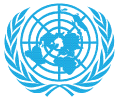Programme
“Africa Rising”
Celebrating success and accelerating action on the Millennium Development Goals for children
Secretary-General Ban Ki-moon’ s MDG Advocacy Group in Africa
1-3 July 2014:
South Africa - Malawi – Rwanda
Participation by UN Secretary-General’s MDG Advocacy Group: including Co-Chairs President Paul Kagame, Prime Minister Erna Solberg and MDG Advocates Ambassador Dho Young-shim, Graca Machel, Stine Bosse, and Phillipe Douste-Blazy
Background:
The MDGs and their success are the best argument and foundation for what comes post-2015. As we approach the deadline for the Millennium Development Goals (MDGs), global leaders continue to do their part to ensure accelerated action, especially in the areas needing greater attention, including health, education, gender equality and women’s empowerment.
The Secretary-General’s MDG Advocates play an important role in this regard, in highlighting key interventions for MDG achievment, and fulfilling their important mandate in engaging high-level leaders from governments, civil society and the private sector.
Critical to MDG acceleration, as well as sustainable development beyond 2015, is a focus on children. Over half the world’s out-of-school children live in Africa and only twelve African countries are nearing universal primary education. Moreover, the child population in Africa is burgeoning. By 2030, the sub-Saharan African region will have the greatest number of children under 18. Clearly, investing in children is one of the greatest accelerators in achieving the MDGs.
Objectives:
MDG Advocacy Group activities in Africa will provide an opportunity to showcase strong support and commitment to accelerate MDG implementation in the time remaining. It will help build political will and mobilize new actors – particularly youth – to take needed action. Building on the recent success of Davos, with a particular focus on youth, women’s empowerment, health and education, the Advocacy Group activities in Africa can more specifically:
- Bring attention to country progress on cross-sectoral issues like education and health.
- Help to define specific and actionable next steps, including acceleration plans, to further progress in areas that are lagging behind the most.
- Encourage partnerships with the government, civil society and private sector to share knowledge and resources, and the innovative scaling-up of existing work.
Expected Outcomes
- Joint statement and/or Op-Ed by the Advocates
- High-level media engagement, i.e. a panel discussion with a major news outlet
- Engagement of the MDG Advocates at the PMNCH Partners’ Forum in Johannesburg
Proposed Program:
South Africa: The MDG Advocacy group and participating Advocates will launch their activities in Africa officially on July 1st (morning) in Johannesburg. As MDG Advocate and Chair of the PMNCH Board, Graca Machel will be leading discussions on accelerating progress on the MDGs; the attendance of the Advocates would show great support. This will be Graca Machel’s first appearance after her mourning period and she will lead a press conference with Advocates on tying Nelson Mandela’s legacy to the fulfilment of the MDGs.
Malawi: Participating Advocates will then travel on to Malawi July 1st in the afternoon. On July 2nd a Prime Minister Solberg and participating advocates will conduct a field visit focused on girl’s education. Malawi is one of the 20 best performing countries in making progress on a number of MDG goals and targets, especially MDG 4, which they have achieved. Despite progress, there still remains much work to be done, especially on education. MDG Advocate presence will help make the final push for MDG 2.
Rwanda: Co-Chair President Kagame will host a MDG Advocates meeting in Kigali on July 3rd, and showcase MDG progress in country with a focus on gender equality. This would build on Davos #investingirls campaign and also advocate for a final push leading up to 2015 and send a strong message on the importance of African leadership.
Overarching narrative:
#Africarising
Narrative can be – focus on newborns, then supporting children and communities through gender empowerment (“invest in girls” argument) tying this to the importance of education. Africa Rising reflects the hope and resilience Mandela promoted by shining a light on positive examples to lead the way in Africa. This approach is in line with Mandela’s legacy and assertion that “education is the most powerful weapon we can use to change the world”.


